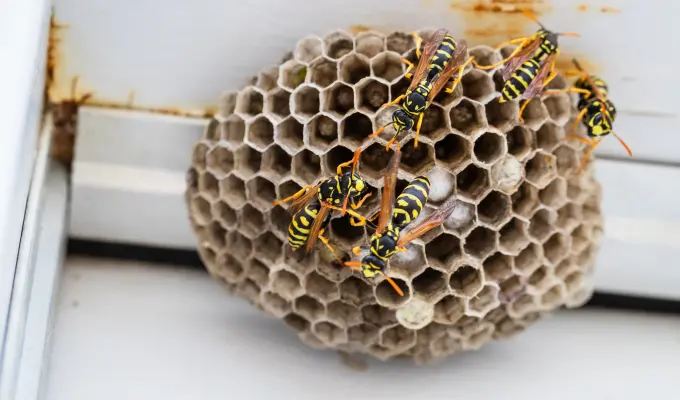Wasps, hornets, bees, and other stinging insects can be serious problems, especially during late summer and early fall when their nests burst at the seams. In addition to disrupting time spent outdoors, stinging insects often construct their nests on, in, or around homes. When this happens, encounters with stinging pests are more likely to occur. If you’ve noticed stinging insect activity around your home, Action Pest Control is ready to help!

When you contact Action Pest Control for stinging insect control, one of our professionals will:
Utilizing specialized personal protective equipment and application tools along with the most effective contact kill insecticides, your Action technician can quickly eliminate stinging insects.
Extermination Services You Can Trust
Home | Bee Wasp & Hornet Control – Removal – Exterminators
Need Pest Control Service?
Leave your information below and we’ll be in touch shortly. After hours calls will be returned the next business day.